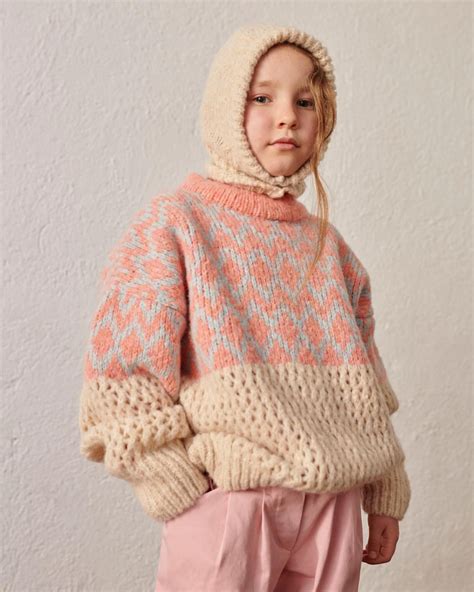1 / 20

2 / 20

3 / 20

4 / 20

5 / 20

6 / 20

7 / 20

8 / 20

9 / 20

10 / 20

11 / 20

12 / 20

13 / 20

14 / 20

15 / 20

16 / 20

17 / 20

18 / 20

19 / 20

20 / 20

❮
❯
Don't Miss Out: The Definitive Guide To Understanding WSCORT Alligator
The world of exotic skins is captivating, filled with unique textures, breathtaking patterns, and a rich history. One particularly striking and sought-after material is alligator skin, renowned for its strength, durability, and luxurious appearance. Within this world, understanding the nuances of different alligator types and processing methods is crucial for discerning buyers and enthusiasts. This guide delves into the specifics of "WSCORT Alligator," exploring its origins, characteristics, processing techniques, care, and ethical considerations, offering a comprehensive understanding of this exquisite material. While the term "WSCORT Alligator" doesn't represent a specific, universally recognized grade or classification within the industry, it likely refers to a high-quality alligator skin sourced and processed under specific, potentially proprietary standards. We'll dissect what such standards might encompass and how to determine the legitimacy and quality of products claiming this designation.
Understanding Alligator Skin Grades and Classifications:
Before we dive into the specifics of "WSCORT Alligator," it's crucial to understand the general grading system used for alligator skin. The quality of alligator skin is determined by several factors, including:
- Size and Shape of Scales: Larger, more uniform scales are generally considered more desirable and command higher prices. The arrangement and symmetry of scales also contribute to the overall aesthetic appeal.
- Thickness and Consistency: A consistent thickness throughout the hide indicates superior quality and better suitability for various applications. Thinner hides are often preferred for certain accessories, while thicker hides are better suited for larger goods like luggage or handbags.
- Scarring and Blemishes: The presence of scars, marks, or other imperfections affects the grade and value of the skin. High-grade alligator skin will have minimal blemishes.
- Color and Pattern: The natural color and pattern of the alligator skin influence its desirability. Certain colors and patterns are more sought-after than others, contributing to price variations.
- Processing and Finishing: The tanning and finishing processes significantly impact the final appearance, feel, and durability of the alligator skin. High-quality processing enhances the skin’s natural beauty and longevity.
What Might "WSCORT Alligator" Imply?
As mentioned earlier, "WSCORT Alligator" isn't a universally recognized term within the leather industry. However, it likely represents a specific standard or brand aiming to differentiate its alligator skin products based on superior quality and processing. This could mean several things:
- Source and Sustainability: “WSCORT” might indicate a commitment to sourcing alligator skins from farms that adhere to sustainable practices, ensuring ethical and responsible harvesting. This implies traceability and transparency in the supply chain, allowing consumers to make informed choices.
- Tanning and Finishing Methods: The term could refer to a specific tanning and finishing process that enhances the quality, durability, and appearance of the alligator skin. This might involve using particular chemicals, techniques, or a combination of both resulting in a superior finish. This could include techniques that maintain the natural texture and color while providing superior water resistance and longevity.
- Size and Quality Control: “WSCORT” might represent a standard for selecting only the highest-quality alligator hides, ensuring consistent size, minimal scarring, and uniform scale patterns. Strict quality control measures would be implemented throughout the processing stages.
- Brand Reputation and Exclusivity: It could simply be a brand name associated with premium alligator skin products, aiming to build a reputation for quality and exclusivity. This would rely on consistent delivery of high-quality goods and customer satisfaction.
Identifying Authentic "WSCORT Alligator" (or Similar High-Grade Skins):
Determining the authenticity and quality of alligator skin products claiming to be "WSCORT Alligator" or a similar designation requires careful consideration:
- Documentation and Certification: Look for documentation or certification from reputable organizations confirming the origin, sustainability practices, and tanning methods used. Third-party certifications can provide an independent verification of claims.
- Transparency and Traceability: A reputable seller should be able to provide detailed information about the source of the alligator skin, including the farm or supplier. Transparency in the supply chain is crucial for ethical sourcing.
- Visual Inspection: Examine the skin closely for consistency in scale size, pattern, and color. Minimal scarring and blemishes indicate high quality. Feel the texture; high-grade alligator skin should feel smooth, supple, and luxurious.
- Expert Appraisal: For high-value items, consider consulting a leather expert or appraiser to verify the authenticity and quality of the alligator skin.
- Reputation of the Seller: Choose reputable sellers with a strong track record of providing high-quality goods and excellent customer service. Read reviews and testimonials from previous customers.
Care and Maintenance of WSCORT Alligator (or Similar High-Grade Skins):
Proper care and maintenance are crucial for preserving the beauty and longevity of alligator skin products. Here are some key recommendations:
- Cleaning: Clean your alligator skin items regularly with a soft, damp cloth. Avoid using harsh chemicals or abrasive cleaners.
- Conditioning: Occasionally condition your alligator skin items with a high-quality leather conditioner to maintain their suppleness and prevent drying.
- Storage: Store your alligator skin products in a cool, dry place, away from direct sunlight and extreme temperatures. Use dust bags or protective cases to prevent scratches and dust accumulation.
- Repair and Restoration: If your alligator skin item becomes damaged, seek professional repair services from a reputable leather specialist. Attempting to repair it yourself could cause further damage.
Ethical Considerations: Sustainable Alligator Farming
The ethical sourcing of alligator skin is paramount. Supporting sustainable farming practices helps ensure the long-term viability of alligator populations and reduces the environmental impact of the industry. Look for brands committed to:
- Responsible Harvesting: Sustainable farms carefully manage their alligator populations, ensuring responsible harvesting practices that do not deplete wild populations.
- Animal Welfare: Ethical farms prioritize the well-being of their alligators, providing adequate living conditions and minimizing stress.
- Environmental Protection: Sustainable farming practices minimize the environmental impact of the industry, protecting habitats and biodiversity.
- Transparency and Traceability: Ethical brands provide transparency in their supply chains, allowing consumers to trace the origin of their alligator skin products.
Conclusion:
While "WSCORT Alligator" may not be a universally accepted term, it likely represents a high standard of quality in alligator skin. Understanding the factors that contribute to the grading and classification of alligator skin, along with the ethical considerations of sustainable farming, allows discerning consumers to make informed choices. By carefully considering the source, processing, and care instructions, you can ensure that your "WSCORT Alligator" (or similar high-grade) products remain a testament to luxurious quality and lasting beauty for years to come. Remember to always prioritize ethical and sustainable sourcing, supporting brands committed to responsible practices within the alligator skin industry. Investing in high-quality, ethically sourced alligator skin is an investment in lasting luxury and mindful consumption. By being informed and discerning, you can contribute to a more sustainable and responsible future for this exquisite material.